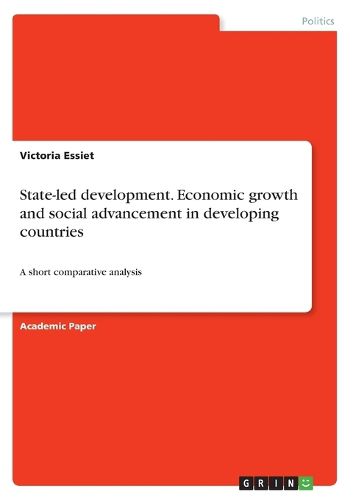Readings Newsletter
Become a Readings Member to make your shopping experience even easier.
Sign in or sign up for free!
You’re not far away from qualifying for FREE standard shipping within Australia
You’ve qualified for FREE standard shipping within Australia
The cart is loading…






Academic Paper from the year 2017 in the subject Politics - Topic: Development Politics, grade: 70, course: Development Perspectives, language: English, abstract: This essay carries out a comparative analysis of state intervention in certain economies. Additionally, it examines factors that culminated in success of these intervention as well as factors that have amounted to the failure of state-led intervention using a case selection of Nigeria, Korea and Japan respectively. For this essay, state-led development and State Intervention would be used interchangeably. The responsibility of the state in fostering economic growth and social advancement in developing countries has been a subject of debate among international development experts and policy analysts for over half of the century. The end of World War II, saw the embrace of a state-led model of development by newly independent states in Africa and Asia and the wider global community, in order to bring about industrialization and entrepreneurship through deliberate effort and state.
$9.00 standard shipping within Australia
FREE standard shipping within Australia for orders over $100.00
Express & International shipping calculated at checkout
Academic Paper from the year 2017 in the subject Politics - Topic: Development Politics, grade: 70, course: Development Perspectives, language: English, abstract: This essay carries out a comparative analysis of state intervention in certain economies. Additionally, it examines factors that culminated in success of these intervention as well as factors that have amounted to the failure of state-led intervention using a case selection of Nigeria, Korea and Japan respectively. For this essay, state-led development and State Intervention would be used interchangeably. The responsibility of the state in fostering economic growth and social advancement in developing countries has been a subject of debate among international development experts and policy analysts for over half of the century. The end of World War II, saw the embrace of a state-led model of development by newly independent states in Africa and Asia and the wider global community, in order to bring about industrialization and entrepreneurship through deliberate effort and state.